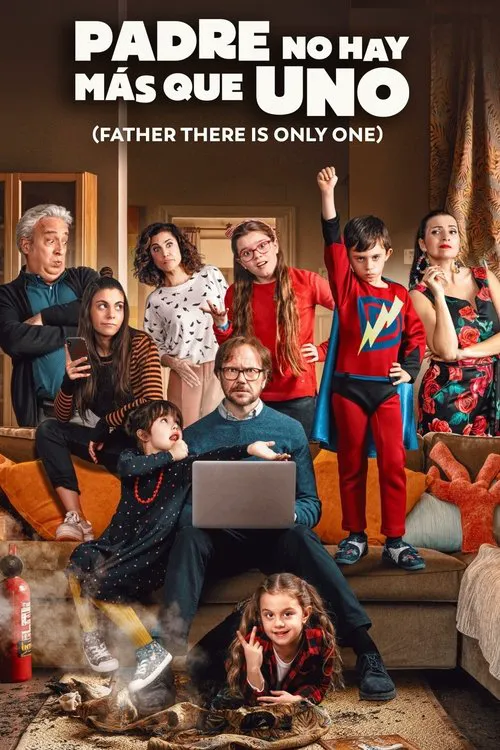Father There Is Only One

Plot
The sun had just begun to rise over the small suburban home, casting a warm glow over the tidy living room and its inhabitants. Javier, a man in his mid-life, was lounging on the couch, sipping a steaming hot cup of coffee and watching his wife, Ana, as she bustled around the room, getting the children ready for the day. The kids were a handful, to say the least – five rambunctious children ranging in age from four to twelve, each with their own unique personality and set of demands. Javier's role in the family was somewhat of a anomaly – he was often referred to as a "husband-in-law" by Ana, who lovingly joked that he was more like a guest in their home rather than a full-fledged partner. While he had a good heart and a deep love for his family, Javier was, in many ways, a free spirit who preferred to focus on his own interests and hobbies rather than taking on the more practical tasks of household duty. As the morning chaos reached its peak, Ana announced that she had booked a solo trip to the beach, and that Javier would be in charge of taking care of the kids for the next few days. Javier's face lit up with a mix of excitement and terror as he watched his wife pack her bags and bid the kids a tearful farewell. "Okay, okay," Javier said, trying to sound calm and confident. "I got this, guys. Don't worry, I'll take care of everything." But as soon as Ana was out the door, the house erupted into chaos. The kids immediately began bickering and fighting, while Javier stood frozen in the middle of the room, unsure of where to start. He tried to intervene, offering words of wisdom and guidance, but it was clear that he was in over his head. One of the kids, a mischievous six-year-old named Lucas, began to throw food on the floor, while another, a sensitive four-year-old named Sofia, burst into tears, claiming that she was "too scared" of the "bad food." Javier tried to calm them down, but it seemed like every solution he offered only seemed to make things worse. As the day wore on, the situation continued to spiral out of control. The kitchen became a war zone, with pots and pans clanging and food scraps scattered everywhere. The living room was a mess, with toys and books and clothes strewn about. And Javier, the supposedly capable husband-in-law, was nowhere to be found – stuck on the couch, watching the mayhem unfold with a mixture of horror and paralysis. But as the hours passed, something strange began to happen. Javier's kids, despite the initial chaos, started to come around. They began to see their father in a different light – not as the absent, irresponsible partner they had always known, but as a real, live person who was capable of making mistakes and trying to learn from them. One by one, the kids started to approach Javier, asking for help and guidance. Lucas, who had been throwing food just hours before, now came over and asked for a hug. Sofia, who had been trembling with fear, now began to playfully giggle with her father. And the oldest, a wise and gentle twelve-year-old named Mateo, took it upon himself to teach Javier how to make dinner – a brave step forward, considering that Javier had barely boiled water in years. As the night drew to a close, Javier sat around the dinner table with his children, laughing and talking and genuinely connecting with them for the first time in years. The meal was a disaster, to be sure – burnt offerings and unevenly cooked vegetables were the order of the day – but the company was good. Javier was finally feeling like a part of the family, rather than a distant observer. As the days passed, Javier continued to stumble and falter – making mistakes and causing chaos wherever he went. But slowly, steadily, he began to grow and learn. He started to see his children as individuals, each with their own strengths and weaknesses. And he began to appreciate the little things – a messy room, a burned dinner, a snuggle fest on the couch. In the end, Javier emerged from the ordeal with a newfound appreciation for his family and a deeper understanding of his role within it. He still wasn't perfect – far from it – but he was no longer the absent, irresponsible husband-in-law of old. He was a real, live person – capable of love, laughter, and a little bit of chaos. And for that, he was eternally grateful.
Reviews
Recommendations




